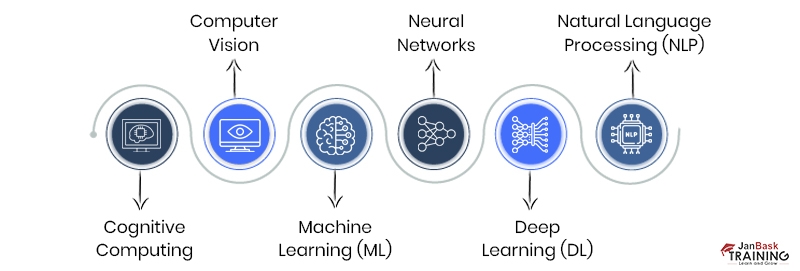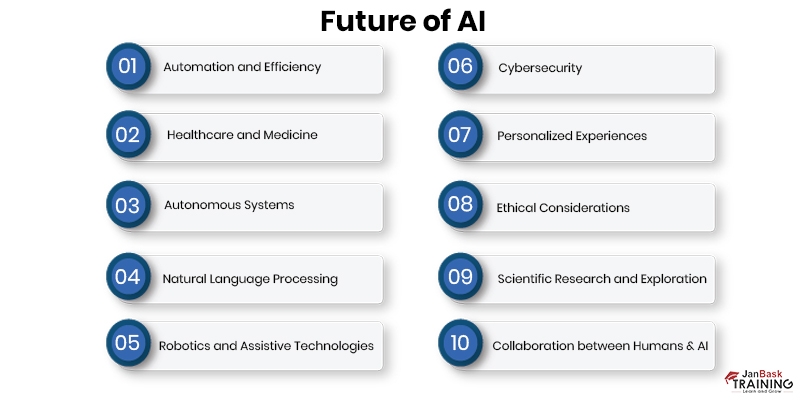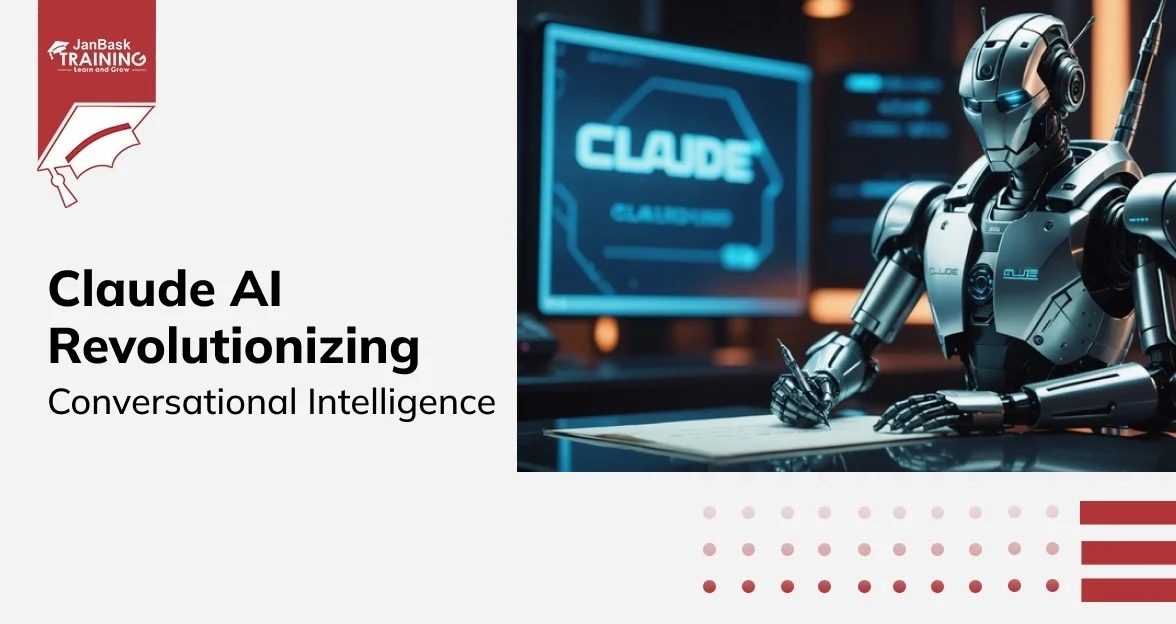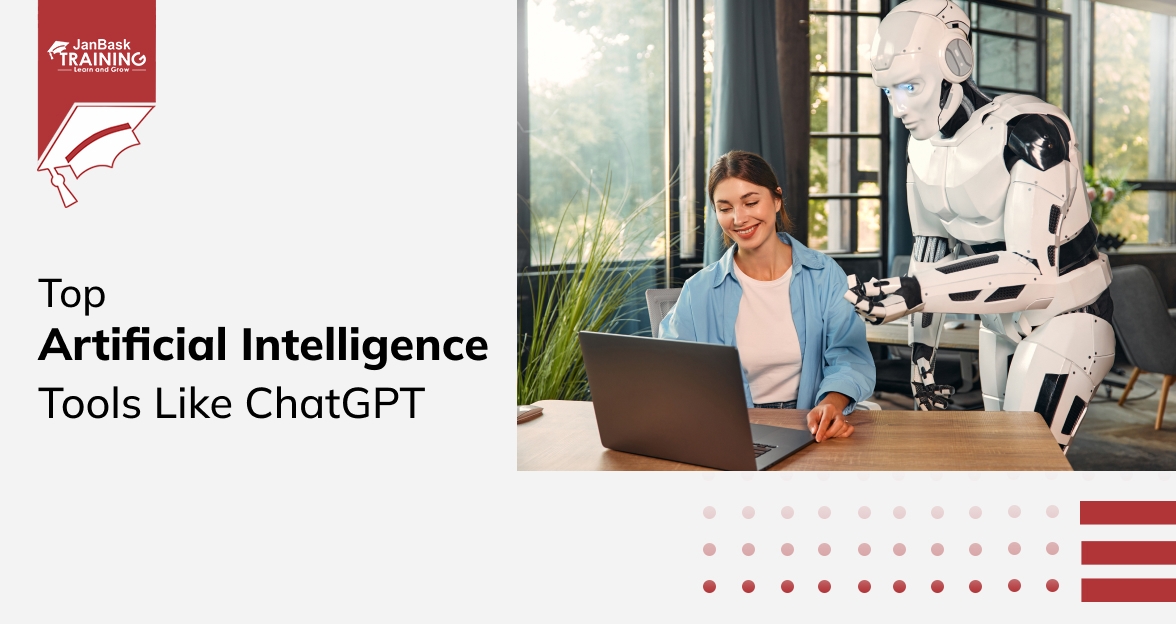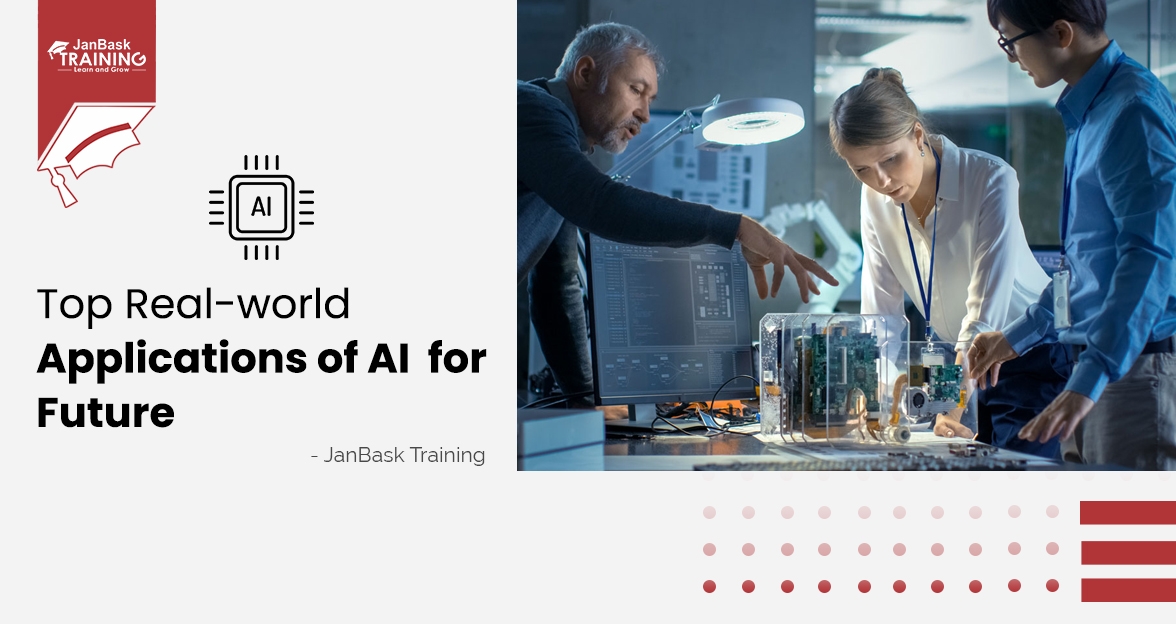Introduction
In the era of rapid technological advancements, one innovation stands out among the rest: Artificial Intelligence (AI). AI has emerged as a powerful tool with the potential to revolutionize industries and transform various aspects of our lives.
AI, or Artificial Intelligence, refers to the development of computer systems capable of performing tasks that typically require human intelligence. It involves the creation of intelligent machines that can perceive, reason, learn, and problem-solve.
AI encompasses various techniques such as machine learning, natural language processing, computer vision, and robotics. The goal of AI is to enable machines to simulate human intelligence, enabling them to perform tasks autonomously, make informed decisions, and adapt to new situations. AI has uses in numerous fields, including healthcare, finance, transportation, customer service, and more, with the potential to revolutionize industries and improve efficiency and productivity.
In this blog, we will explore the incredible most common uses of AI, highlighting its impact on decision making and across diverse domains.
What Is Artificial Intelligence (AI)?
Artificial Intelligence (AI) refers to the development of computer systems that can perform tasks that typically require human intelligence. It involves the creation of intelligent machines that can perceive their environment, reason, learn from experience, and make decisions. AI encompasses various subfields such as machine learning, natural language processing, computer vision, and robotics.
The ultimate goal of AI is to enable machines to mimic human cognitive abilities and perform complex tasks autonomously. AI has applications in diverse areas, including healthcare, finance, transportation, gaming, and more, and continues to advance with the potential to revolutionize numerous industries and improve everyday life.
How is AI Different from Human Intelligence?
AI and human intelligence differ in several key aspects:

What Are The Applications Of AI?
AI has a wide range of utilizations across various industries and domains. Here are some common uses of AI:

Applications Of AI in Automation and Robotics
Practical uses of AI is used to automate repetitive or mundane tasks in manufacturing, logistics, and other industries. Robotics and autonomous systems utilize AI to perform complex physical tasks with precision.
- Autonomous Vehicles: AI is used extensively in self-driving cars and autonomous drones. These vehicles rely on sensors, cameras, and AI algorithms to perceive their surroundings, make decisions, and navigate safely. AI enables them to analyze real-time data, identify objects, recognize road signs, and respond to dynamic situations on the road.
- Industrial Automation: AI-powered robots are employed in manufacturing and industrial settings to automate repetitive and complex tasks. These robots can handle assembly, welding, packaging, and material handling with precision and speed. AI algorithms enable them to adapt to changes in the environment, optimize workflows, and improve productivity.
- Intelligent Process Automation: AI is used to automate various business processes. For example, in customer service, chatbots powered by AI can handle customer inquiries, provide support, and even perform transactions. AI algorithms analyze customer messages, understand intent, and generate appropriate responses, offering quick and efficient service.
- Detecting and manipulating objects, calculating distances and avoiding Obstacles: The applications of AI in robotics, including object detection, manipulation, distance calculation, and obstacle avoidance, are constantly expanding. One notable advancement is the development of autonomous navigation, enabling robots to operate independently in unfamiliar environments. This capability is made possible through the collection and processing of data from sensors, computer vision, and machine learning systems, employing sophisticated algorithms to detect objects, calculate distances, and navigate around obstacles.
- Manipulation of objects: In terms of object manipulation, AI technology offers enhanced precision and efficiency. By utilizing sensors, robots can gather vital information to adjust their grip force according to the specific object they are handling and the task they are performing. With experience, robots also improve their manipulation skills, further enhancing their capabilities in this area.
Applications Of AI in Financial Services
Effective uses of AI is utilized for fraud detection, risk assessment, algorithmic trading, and customer service in the financial industry.
- Fraud Detection: AI algorithms can analyze vast amounts of financial data to detect fraudulent activities and patterns. By learning from historical data, AI systems can identify anomalies, unusual transactions, and suspicious behavior in real-time, helping financial institutions prevent fraud and enhance security.
- Risk Assessment and Credit Scoring: AI models can assess creditworthiness and calculate risk more accurately than traditional methods. By analyzing various data sources, including credit history, financial statements, and alternative data like social media profiles, AI algorithms can generate more precise credit scores and evaluate the likelihood of default, enabling lenders to make informed decisions.
- Algorithmic Trading: AI is extensively used in algorithmic trading, where machines execute trades based on predefined rules and real-time market data. AI algorithms can analyze market trends, news, and historical data to identify patterns and make predictions. This enables automated trading systems to execute trades with speed and efficiency, often outperforming human traders.
- Corporate Finance: The integration of AI in corporate finance has become a significant asset in assessing and predicting loan risks. Many companies rely on these tools for underwriting and minimizing financial risks, offering advanced fraud detection capabilities, and conducting accurate financial analyses. Additionally, AI finance solutions are employed by corporate organizations to effectively combat money laundering, with notable success reported by major companies operating in the corporate sector.
- Chatbots: The demand for round-the-clock connectivity with banks is a common expectation among customers. Finance AI technologies address this need by employing chatbots, thereby enhancing banking services through simulated real-time conversations. These chatbots utilize natural language processing technology to provide precise and instantaneous responses to customer inquiries. As a result, financial institutions gain increased customer attention, attract new clients, and provide better services to existing customers.
Application of AI in Healthcare
Uses of AI in Healthcare enables medical image analysis, disease diagnosis, drug discovery, personalized medicine, and virtual health assistants, enhancing patient care and medical research.
- Medical Imaging: Practical uses of AI algorithms can analyze medical images such as X-rays, CT scans, and MRIs to assist radiologists in detecting and diagnosing diseases. AI models can identify patterns, anomalies, and markers of diseases, aiding in early detection and accurate diagnosis. For instance, AI has shown promising results in detecting breast cancer, lung cancer, and retinal diseases.
- Predictive Analytics and Early Intervention: AI algorithms can analyze patient data, including medical records, lab results, and vital signs, to predict the likelihood of disease progression, complications, or adverse events. This enables healthcare providers to intervene early and implement preventive measures, improving patient outcomes and reducing healthcare costs.
- Virtual Assistants and Chatbots: AI-powered virtual assistants and chatbots are used to provide 24/7 patient support, answer medical queries, and offer personalized healthcare advice. These systems can triage patient symptoms, provide self-care recommendations, and assist in scheduling appointments, reducing the burden on healthcare staff and improving patient access to information.
- Rule-based Expert Systems: Many electronic health record systems (EHRs) include a predefined set of rules as part of their software offerings. Expert systems typically involve human experts and engineers who construct a comprehensive set of rules within a specific knowledge domain. These systems function effectively and are easy to comprehend and process, up to a certain point. However, when the number of rules becomes excessively large, often surpassing several thousand, conflicts among the rules can arise, leading to system breakdown.
Application of AI in Data Analysis and Insights
AI plays a significant role in data analytics and utilization, empowering organizations to extract valuable insights, make informed decisions, and optimize their operations. Here are some key ways AI is utilized in this domain:
- Data Processing and Cleaning: AI algorithms can automate data preprocessing tasks, such as data cleaning, normalization, and integration. AI can detect and handle missing values, outliers, and inconsistencies in data, ensuring the accuracy and quality of the dataset before analysis
- Pattern Recognition and Anomaly Detection: AI techniques, such as machine learning and deep learning, can identify patterns, trends, and anomalies in large datasets. By analyzing historical data, AI models can uncover hidden insights and make predictions or detect anomalies that might indicate fraud, unusual behavior, or emerging patterns.
- Predictive Analytics and Forecasting: AI algorithms can predict future outcomes based on historical data. By analyzing patterns and relationships within the data, AI models can forecast sales, demand, financial performance, and other business metrics. This enables organizations to make data-driven decisions, plan effectively, and optimize resource allocation.
- Natural Language Processing (NLP): NLP techniques allow AI systems to understand and extract insights from unstructured textual data. AI models can analyze documents, social media content, customer reviews, and survey responses to derive sentiment analysis, topic modeling, and text summarization. This enables organizations to gain valuable insights from textual data and understand customer sentiments and preferences.
- Recommendation Systems: AI-powered recommendation systems are widely used in various industries, such as e-commerce, media, and entertainment. These systems analyze user preferences, behavior, and historical data to generate personalized recommendations. By leveraging AI algorithms, organizations can enhance customer experiences, increase engagement, and drive revenue.
Application of AI in Cybersecurity
AI is utilized for threat detection, anomaly detection, and behavior analysis to enhance cybersecurity defenses. AI can significantly enhance cybersecurity by detecting and preventing cyber threats, analyzing vast amounts of data for anomalies, and strengthening overall defense mechanisms.
Here are several ways AI can help in cybersecurity:
- Threat detection and prevention: AI algorithms can analyze network traffic, system logs, and user behavior to identify patterns indicative of cyber threats, such as malware, viruses, and intrusions. AI-powered systems can continuously monitor and analyze data, detect suspicious activities in real-time, and respond swiftly to mitigate potential risks.
- Anomaly detection: AI can establish baselines of normal behavior for networks, systems, and users. By comparing ongoing activities to these baselines, AI algorithms can identify anomalies that may indicate malicious activity or unauthorized access attempts. This approach is particularly useful in detecting sophisticated and previously unseen attacks.
- User authentication and access control: AI can enhance user authentication methods by analyzing various factors like keystroke dynamics, facial recognition, voice patterns, and behavioral biometrics. AI algorithms can assess the legitimacy of login attempts and detect potential fraud or unauthorized access.
- Vulnerability assessment and patch management: AI can scan systems and applications for vulnerabilities, prioritize them based on potential risks, and recommend patches or configuration changes. This helps organizations proactively address vulnerabilities and reduce the likelihood of exploitation.
- Security analytics: AI-powered security analytics platforms can process and analyze large volumes of security-related data, including logs, events, and alerts from various sources. By correlating and contextualizing this information, AI can identify trends, patterns, and potential threats that might go unnoticed by human analysts.
Application of AI in Education
AI-based educational tools and best uses of AI provide personalized learning experiences, adaptive tutoring, and intelligent assessment to enhance student engagement and academic performance.
- Personalized Learning: AI algorithms can adapt educational content and learning experiences to individual students' needs and learning styles. By analyzing student data and performance, AI systems can provide personalized recommendations, adaptive learning paths, and targeted interventions, ensuring that students receive tailored instruction and support.
- Intelligent Tutoring Systems: AI-powered tutoring systems can provide personalized guidance and support to students. These systems use machine learning algorithms to understand student responses, identify misconceptions, and provide targeted feedback. Intelligent tutoring systems can offer interactive and engaging learning experiences, improving student outcomes and retention.
- Automated Grading and Feedback: AI can automate the grading process for assignments, quizzes, and exams. Natural Language Processing (NLP) algorithms can assess and evaluate student responses, providing instant feedback on their work. Automated grading reduces the burden on teachers, enables faster feedback cycles, and allows students to track their progress in real-time.
- Educational Research: One of the best uses of AI offers another valuable application in educational research by analyzing data collected from online learning platforms. As remote learning becomes increasingly prevalent, a vast amount of data is generated regarding student interactions with online materials and the effectiveness of these resources in facilitating learning. Leveraging AI, researchers can identify the most effective online resources tailored to different types of learners and optimize them to enhance student outcomes. This data-driven approach enables researchers to gain insights into how online materials can be further optimized to promote effective learning for diverse student populations.
Application of AI in Agricultural Technology
AI has the potential to revolutionize agriculture technology by optimizing farming practices, improving crop yield and quality, and addressing various challenges faced by the agricultural industry. Here are several ways AI can help in agriculture technology:
- Precision farming: AI can analyze data collected from sensors, drones, satellites, and other sources to provide farmers with precise information about soil quality, moisture levels, temperature, and crop health. This allows farmers to optimize irrigation, fertilizer usage, and pesticide application, resulting in reduced costs and increased crop yields.
- Crop monitoring and disease detection: AI algorithms can analyze images and sensor data to monitor crop health and detect early signs of diseases, pests, or nutrient deficiencies. This enables farmers to take timely action, apply targeted treatments, and prevent the spread of diseases, leading to improved crop productivity.
- Automated farming operations: AI-powered robotics and automation can be used for various tasks in agriculture, such as seeding, planting, harvesting, and weed control. Autonomous vehicles equipped with AI systems can navigate fields, identify crops, and perform specific tasks with precision, reducing the need for manual labor and increasing operational efficiency.
- Predictive analytics: AI models can analyze historical and real-time data, including weather patterns, market trends, and crop performance, to make predictions about yields, pest outbreaks, and market demand. This helps farmers in making informed decisions about planting schedules, resource allocation, and crop diversification, optimizing their production and profitability.
- Livestock monitoring: AI can be utilized to monitor the health and behavior of livestock. Sensors and cameras can collect data on feeding patterns, movement, temperature, and other vital signs, which AI algorithms can analyze to detect anomalies, predict diseases, and optimize livestock management practices.
Application of AI in Gaming Experience
AI is used mainly in video games to enhance the whole gaming experience for humans. It enhances the surrounding landscape, and reshaping it according to the response and actions of human players. It is also used as non-player characters, also called NPCs, often as a sidekicks, enemies, or allies of humans that appear in the video games. AI helps these NPCs to tweak their behaviour and characters according to the decision and actions taken by the humans during the game.
It can also keep track and learn from the human interaction throughout the game and converse and take actions that human gamers experience. As a result, AI immerse human users in video gaming experience by creating intelligent virtual opponents, enhancing game realism, and personalizing gameplay experiences by introducing malleable narratives and life-like charaters.
Application of AI in Human Resources
AI aids in talent acquisition, candidate screening, and employee engagement by automating repetitive HR tasks, analyzing resumes, and providing data-driven insights.
- Recruitment and Candidate Screening: AI algorithms can analyze resumes, job applications, and candidate profiles to identify the most suitable candidates for a position. AI-powered applicant tracking systems (ATS) can automate the initial screening process, saving time and effort for HR professionals. These systems can match candidate qualifications with job requirements, assess skills, and even conduct video interviews.
- Employee Onboarding: AI can facilitate the onboarding process by providing new employees with relevant information, training materials, and resources. AI-powered chatbots can answer common questions, guide new hires through company policies and procedures, and help them become acclimated to the organization more quickly.
- Performance Management: AI can assist in evaluating employee performance and providing feedback. AI-powered systems can track key performance metrics, analyze data, and generate performance reports. This helps HR professionals and managers gain insights into employee performance trends, identify areas for improvement, and provide timely feedback and coaching.
- Employee Engagement and Retention: AI can analyze employee data, such as surveys, feedback, and sentiment analysis, to assess employee engagement levels and identify factors that contribute to job satisfaction or dissatisfaction. This enables HR teams to proactively address concerns, design interventions, and implement strategies to improve employee retention and satisfaction.
Is AI Setting A Limit For Human Application?
AI is not setting a limit for human application, but rather expanding the possibilities and augmenting human capabilities. While AI can automate certain tasks and processes, it does not replace the need for human involvement and expertise. Instead, AI can assist humans in making better decisions, improving efficiency, and unlocking new opportunities.
AI has the potential to handle complex and time-consuming tasks, allowing humans to focus on higher-level thinking, creativity, problem-solving, and decision-making. By offloading repetitive or mundane tasks to AI systems, humans can devote their energy to more strategic and innovative endeavors.
Additionally, AI can provide valuable insights and recommendations based on vast amounts of data, enabling humans to make informed decisions and solve problems more effectively. It can enhance human capabilities in areas such as healthcare, scientific research, finance, and many other domains.
However, it is important to recognize that human judgment, critical thinking, ethics, and emotional intelligence are still essential and cannot be fully replicated by AI. Humans provide the context, values, and ethical considerations necessary to make responsible decisions.
AI is transforming how humans work and offering opportunities for collaboration, innovation, and improved outcomes in various fields. The combination of human expertise and AI capabilities has the potential to unlock new levels of productivity and advancement.
Future Scope Of AI

The future scope of AI is vast and holds tremendous potential for advancements across multiple domains. Here are some key areas that highlight the future uses of AI:
Automation and Efficiency: AI will continue to automate tasks and processes, leading to increased productivity and efficiency in various industries. Routine and repetitive tasks can be delegated to AI systems, allowing humans to focus on more complex and creative work.
Healthcare and Medicine: AI has significant potential in revolutionizing healthcare, including medical diagnosis, personalized treatment plans, drug discovery, and patient monitoring. AI algorithms can analyze vast amounts of medical data, aiding in early detection and improving patient outcomes.
Autonomous Systems: AI-powered autonomous vehicles, drones, and robots are expected to advance further, transforming transportation, logistics, and manufacturing industries. These systems can enhance safety, reduce human error, and optimize operations.
Natural Language Processing: Natural language processing capabilities will continue to improve, enabling more sophisticated virtual assistants, chatbots, and language translation services. Interactions between humans and machines will become more seamless and natural.
Robotics and Assistive Technologies: AI-driven robots and assistive technologies will play a crucial role in supporting the elderly, people with disabilities, and healthcare professionals. These technologies can assist with tasks, provide companionship, and enhance the quality of life for individuals.
Cybersecurity: AI will play a vital role in cybersecurity, helping detect and mitigate sophisticated cyber threats. AI algorithms can identify patterns, anomalies, and potential vulnerabilities to strengthen defenses and protect sensitive data.
Personalized Experiences: AI will enable highly personalized experiences across various industries, including entertainment, marketing, and e-commerce. Recommendation systems and targeted advertising will be tailored to individual preferences and behavior.
Ethical Considerations: As AI continues to advance, ethical considerations surrounding data privacy, algorithm bias, transparency, and accountability will become increasingly important. Efforts will be made to ensure the responsible and ethical development and deployment of AI systems.
Scientific Research and Exploration: AI can assist scientists in data analysis, simulations, and modeling, accelerating scientific discoveries and breakthroughs in fields such as astronomy, genomics, and climate science.
Collaboration between Humans and AI: The future will involve increased collaboration between humans and AI systems, with humans providing contextual understanding, creativity, and critical thinking, while AI contributes data analysis, pattern recognition, and optimization.
It is important to note that the future of AI will be shaped by ongoing research, technological advancements, and ethical considerations to ensure that AI benefits society while addressing potential challenges and risks.
Conclusion
Artificial Intelligence (AI) has emerged as a transformative technology with immense potential for the future. Its ability to mimic human intelligence, automate tasks, analyze vast amounts of data, and make intelligent decisions is revolutionizing industries and opening up new opportunities. AI is not meant to replace humans, but rather to augment their capabilities, freeing them from repetitive tasks and enabling them to focus on higher-level thinking, creativity, and problem-solving.
Obtaining an online certification in AI can enhance your knowledge and skills in this rapidly advancing field, opening up exciting career opportunities.
FAQs
Q1. What is AI mostly used for?
Ans:- AI is predominantly used for a wide range of applications, with the goal of leveraging intelligent systems to perform tasks that typically require human intelligence. The field of AI encompasses various domains, including natural language processing, computer vision, machine learning, and robotics. Organizations across industries learn artificial intelligence to develop AI-powered solutions and gain a deeper understanding of its capabilities. AI is employed to automate processes, enhance decision-making, improve efficiency, and enable intelligent interactions with users.
By learning artificial intelligence, researchers and developers can explore its potential applications in tasks such as data analysis, pattern recognition, speech recognition, image classification, recommendation systems, autonomous vehicles, virtual assistants, and much more. The continuous exploration of AI capabilities by those who learn artificial intelligence paves the way for further advancements and innovative solutions.
Q2. How is AI useful in real life?
Ans:- In real-life scenarios, AI offers a wide range of practical applications that bring significant value. By harnessing AI technologies, individuals and organizations can enhance efficiency, improve decision-making processes, and automate various tasks. Online platforms and services utilize AI to personalize user experiences, recommend products, and optimize content delivery. In business settings, AI enables data analysis and predictive modeling, providing valuable insights for informed decision-making. In healthcare, AI aids in disease diagnosis, treatment planning, and medical image analysis.
Furthermore, AI-powered virtual assistants and chatbots deliver efficient customer support and assistance. To unlock the potential of AI, individuals can explore online artificial intelligence courses, such as an artificial intelligence course online, to acquire the necessary knowledge and skills for applying AI techniques in practical, real-life applications.
Q3. What are the 5 benefits of artificial intelligence?
Ans:- Five benefits of Artificial Intelligence include:
- Automation: AI enables the automation of repetitive and mundane tasks, saving time and reducing human effort.
- Efficiency: AI processes and analyzes vast amounts of data quickly and accurately, resulting in increased efficiency and productivity.
- Decision Making: AI algorithms analyze complex data sets, identify patterns, and provide valuable insights, facilitating informed and data-driven decision making.
- Personalization: AI-powered systems deliver personalized user experiences by offering tailored recommendations, content, and services based on individual preferences and behaviors.
- Innovation: AI drives innovation by empowering the development of intelligent systems and technologies that solve complex problems, lead to new discoveries, and transform various industries.
Q4. Is a certificate in AI worth it?
Ans:- Artificial Intelligence certification can be of immense value for individuals aiming to enter or advance their careers in the field of AI. Obtaining an artificial intelligence certification offers numerous advantages, including expanded job prospects, heightened expertise and knowledge in AI, industry recognition, and valuable networking opportunities. However, the actual worth of an artificial intelligence certification depends on the quality and reputation of the certification program, as well as the individual's dedication to applying their acquired AI skills and knowledge.
It is crucial to carefully consider personal career goals, evaluate the curriculum of the specific artificial intelligence certification program, and assess the current demand for AI professionals in the job market before deciding whether pursuing an artificial intelligence certification and artificial intelligence training is a wise choice.
Q5. What is the most sought after AI certification?
Ans:- The most sought-after AI certification can vary depending on individual preferences and industry needs. However, certain certifications are widely recognized and esteemed in the AI field. The "AI Engineer" certification offered by Microsoft Azure is highly regarded and in high demand. Another notable certification is the "Deep Learning Specialization" provided by Coursera, taught by renowned AI expert Andrew Ng. Certifications from organizations like Google Cloud, IBM Watson, and NVIDIA also carry significant value in the industry.
These certifications validate proficiency in AI technologies, algorithms, and frameworks, enhancing attractiveness to employers seeking AI expertise. Ultimately, the most sought-after AI certification depends on specific career goals and desired AI specializations.
Artificial Intelligence Course
Upcoming Batches
Trending Courses
Cyber Security
- Introduction to cybersecurity
- Cryptography and Secure Communication
- Cloud Computing Architectural Framework
- Security Architectures and Models
Upcoming Class
2 days 10 Dec 2025
QA
- Introduction and Software Testing
- Software Test Life Cycle
- Automation Testing and API Testing
- Selenium framework development using Testing
Upcoming Class
10 days 18 Dec 2025
Salesforce
- Salesforce Configuration Introduction
- Security & Automation Process
- Sales & Service Cloud
- Apex Programming, SOQL & SOSL
Upcoming Class
-0 day 08 Dec 2025
Business Analyst
- BA & Stakeholders Overview
- BPMN, Requirement Elicitation
- BA Tools & Design Documents
- Enterprise Analysis, Agile & Scrum
Upcoming Class
4 days 12 Dec 2025
MS SQL Server
- Introduction & Database Query
- Programming, Indexes & System Functions
- SSIS Package Development Procedures
- SSRS Report Design
Upcoming Class
4 days 12 Dec 2025
Data Science
- Data Science Introduction
- Hadoop and Spark Overview
- Python & Intro to R Programming
- Machine Learning
Upcoming Class
11 days 19 Dec 2025
DevOps
- Intro to DevOps
- GIT and Maven
- Jenkins & Ansible
- Docker and Cloud Computing
Upcoming Class
7 days 15 Dec 2025
Hadoop
- Architecture, HDFS & MapReduce
- Unix Shell & Apache Pig Installation
- HIVE Installation & User-Defined Functions
- SQOOP & Hbase Installation
Upcoming Class
11 days 19 Dec 2025
Python
- Features of Python
- Python Editors and IDEs
- Data types and Variables
- Python File Operation
Upcoming Class
5 days 13 Dec 2025
Artificial Intelligence
- Components of AI
- Categories of Machine Learning
- Recurrent Neural Networks
- Recurrent Neural Networks
Upcoming Class
19 days 27 Dec 2025
Machine Learning
- Introduction to Machine Learning & Python
- Machine Learning: Supervised Learning
- Machine Learning: Unsupervised Learning
Upcoming Class
32 days 09 Jan 2026
Tableau
- Introduction to Tableau Desktop
- Data Transformation Methods
- Configuring tableau server
- Integration with R & Hadoop
Upcoming Class
11 days 19 Dec 2025



